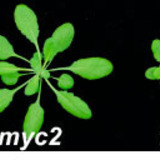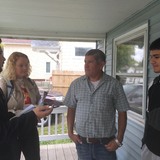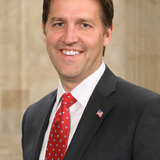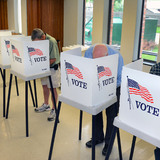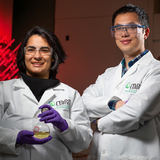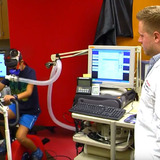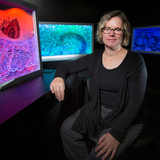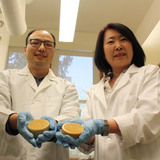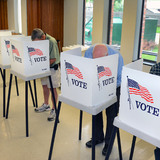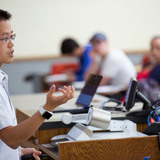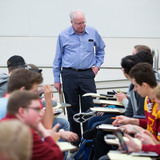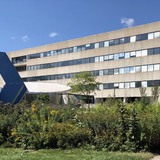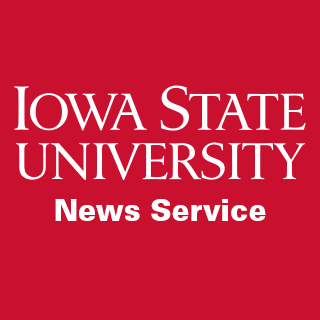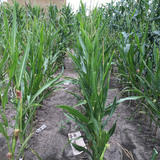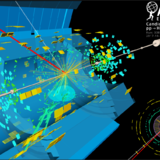News Archive
Wednesday, October 24 2018
-
Checkmate: How plant protein Feronia protects against bacterial attackers
When bacterial pathogens invade a plant, a game of chess plays out inside the cells of the plant as the pathogen tries to hijack the genetic pathways that govern the plant’s disease response. In a newly published study, researchers at Iowa State University describe the tactics the pathogens and the plants use in this high-stakes standoff.
-
Researchers studying Marshalltown tornado’s impact on renter, immigrant households
A disaster researcher at Iowa State University is examining how the tornado that hit Marshalltown this summer affected housing and different types of households – particularly immigrant households and renters – in order to understand what can be done in the future to address disaster recovery needs in the United States.
-
U.S. Senator Ben Sasse to present Manatt-Phelps Lecture in Political Science
U.S. Senator Ben Sasse will discuss human dignity, humility, empathy and respect when he presents the fall 2018 Manatt-Phelps Lecture in Political Science at Iowa State University. Sasse, who was elected to the United States Senate in 2014, will present “If Not Us, Who: Human Dignity in the 21st Century” on Thursday, Oct. 25, in the Memorial Union Great Hall.
-
Unlimited spending on television political ads fails to deliver votes
There is a reason it may seem as if every television ad right now is a political one. Millions of dollars are spent to reach voters through this one medium, but does it pay off on Election Day? According to a new Iowa State University study of political advertising for the 2016 Iowa caucuses, the candidates who spent more on TV ads generally received more support on caucus night, but this does not suggest a candidate can buy an election.
-
Researchers develop, test new system for making biorenewable chemicals
The U.S. Department of Energy is supporting development of a new system for producing biobased chemicals that's based on the idea of "bioprivileged molecules." Researchers at the Center for Biorenewable Chemicals based at Iowa State University introduced the idea last year, saying such molecules have new and valuable properties that aren't possible from petrochemicals.
-
No, we’re not all working for a bunch of psychopaths
Reports of corporate scandals and misdeeds would seem to support the headlines suggesting that many CEOs are psychopaths. But a new study from Iowa State University and University of Alabama researchers found such claims to be overblown. Contrary to public perception, they say the relationship between leadership and psychopathy is weak.
-
Study to explore how cognitive development shapes attitudes about physical activity
Iowa State University researchers are working to understand how the emotional connection we develop with physical activity as children influences attitudes and behaviors throughout our lifetime. They suspect our prefrontal cortex, which regulates emotions, plays a significant role.
-
Etched glass project illuminates microscopic disease to promote health literacy
The complexity and stress of a cancer diagnosis in Kimberly Moss’ family prompted her to start a project addressing health literacy. Moss, coordinator of Iowa State’s biological and premedical illustration program, created “The Landscapes Within,” giving viewers larger-than-life details of different defense mechanisms and cellular relationships in the body.
-
Iowa State University researcher developing new industrial uses for wax made from soybean oil
Researchers at Iowa State University are exploring new uses for soybean oil, including as a coating for cardboard products that would be greener than widely used paraffin wax. The research could open new markets for soybeans at a time when grain prices remain stubbornly low.
-
ISU experts available to comment on 2018 midterm elections
Voters will head to the polls on Nov. 6 to cast their ballots in the midterm elections. Iowa State University political experts are available to discuss expected turnout, the record number of women candidates and policy issues, such as health care and immigration.
-
Asking questions, testing improves student learning of new material
Iowa State University researchers know memory retrieval is beneficial for new learning, but their new meta-analysis found there are limits. The research shows the frequency and difficulty of questions can reverse the effect and be detrimental to learning. It also is not enough to simply ask a question; students must respond to see a positive effect on learning.
-
Engaging students in STEM by changing the classroom experience
Test scores, class attendance and participation have all improved since Elgin Johnston and Heather Bolles switched to a team-based learning approach for calculus courses. The instructors made the change as part of an initiative to retain students in STEM majors.
-
Three Iowa State design programs ranked among nation's best
Iowa State University’s programs in landscape architecture, interior design and architecture are ranked in the top 25 in the United States, according to the latest survey of practitioners by DesignIntelligence.
-
Iowa State study reveals trade disruption impacts on Iowa’s economy
A new study by researchers at the Center for Agricultural and Rural Development (CARD) at Iowa State University reveals the impacts that current trade disruptions are having on Iowa’s economy. Overall, the study shows losses to Iowa’s gross state product in the range of $1 billion to $2 billion.
-
Sweet corn breeding set to make strides with USDA-funded project involving Iowa State University agronomist
An ISU agronomist will contribute to a multi-institutional effort to make advances in sweet corn breeding. Thomas Lubberstedt, a professor of agronomy, will work on applying doubled haploid technology to sweet corn, which will allow for faster production of purely inbred lines of corn.
-
Iowa State physicists contribute to hard-to-find observation of Higgs boson decay
Iowa State physicists contributed to the international collaboration that found a way to sift and sort data from the Large Hadron Collider to observe the Higgs boson decaying into a pair of bottom quarks. The observation gives physicists a better understanding of the Higgs boson and could lead to clues for new physics discoveries.
